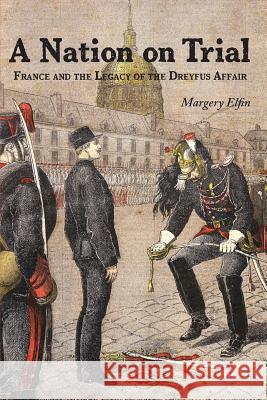A Nation on Trial: France and the Legacy of the Dreyfus Affair » książka
A Nation on Trial: France and the Legacy of the Dreyfus Affair
ISBN-13: 9781535369527 / Angielski / Miękka / 2016 / 220 str.
In a time when burkini bans and terrorist attacks have thrust France into the international news cycle, people around the world are asking if there could be something that sets France apart from other nations and perhaps makes it a target. Is it possible there is more going on beneath the surface, tensions in French society that make it a powder keg? The answer may lie in history and appears most visibly in two military trials, in 1894 and 1899, which earned the moniker of the Dreyfus Affair and extended well beyond the courtroom, much as the O.J. Simpson trial did in the 1990s. Behind the lightheartedness of La Belle Epoque, which France presented to the world at the end of the 19th century, there was a quite different reality illustrated by the Dreyfus Affair and brought to public attention by Emile Zola, an exemplar of realism in literature. He argued that the trials for high treason of a Jewish Army officer, Alfred Dreyfus, was not the just punishment for a national traitor, as the Army claimed, but blatant persecution of a Jewish citizen. The Army thought it could get away with framing an innocent man and sending him to solitary confinement in exile. What the Army did not realize was that the media - armed with a new technology, the telegraph - were about to revolutionize public discourse. The widespread mobilization and polarization of public opinion encouraged by Zola's "J'Accuse" soon proved too strong to ignore. More than 150 years later, much of Zola's fiery critique of French society still rings true.Media coverage, raised to a new level by the telegraph, played as an important role in his day as it does in the present age of the internet - with the challenges of pluralism in France as front and center as ever. If France is to have peace, Elfin argues, it must open itself to broader and more inclusive definitions of French-ness."
Zawartość książki może nie spełniać oczekiwań – reklamacje nie obejmują treści, która mogła nie być redakcyjnie ani merytorycznie opracowana.











